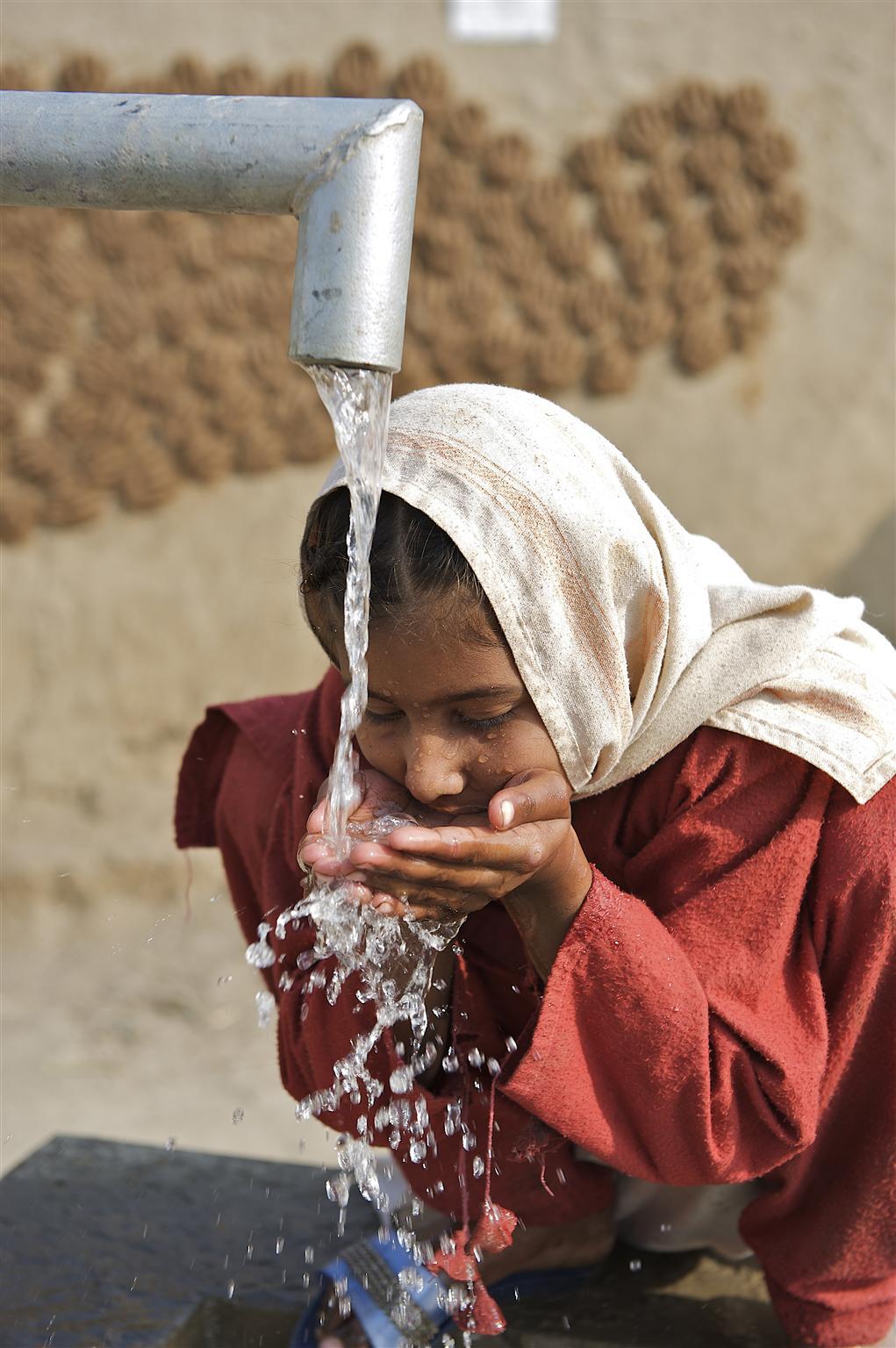The country ranks 27th place in the ranking of global child mortality: a child of 10 does not reach the fifth year of life, mainly due to causes that could be prevented with simple, low-cost measures such as vaccines, anti-malaria mosquito nets, and better nutrition and hygiene conditions.
The scarcity of drinking water and sanitation is the basis for approximately one-third of child mortality: reliable water sources and toilets are absent in the home, but especially in schools.
One-fifth of the schools have a latrine for every 100 pupils, some one every 500, and only 1% of the facilities have soap to wash your hands.
Have clean water for drinking and washing, toilets and drains working: rights seem trivial, for humanity in the third millennium.
Yet still almost 900 million inhabitants of the planet are drawing water from unhealthy sources and 2.6 billion (four out of ten inhabitants) live in hygienic conditions incompatible with the safety and health.
Infants and very young children are the most defenseless victims of waterborne infections from poor hygiene and unclean environment: in fact, 16% of the overall infant mortality is caused by diarrhea, a disease that in the West is to be treated with such ease considered a mere "accident" for children or adults.
And they are no less than 400 million school-age children each year become ill because of intestinal parasites, the consequences of which may even cause delays in cognitive development.
When the water is far away, the girls are forced to leave school to go to pick it up, and the women tied to a daily chore that becomes a real gender discrimination: as in Africa, where the search for water falls 81% on the shoulders of women and girls.
What does UNICEF
The project "Water and sanitation in schools" applies best practices that UNICEF has gained through decades of experience in every part of the planet.
We know that intervene in the poorest districts maximizes the number of lives saved, which improve the school environment increases attendance rates and the gender inequalities that hygiene education that you do in school is beneficial even among the families of pupils.
The aim of the project is to extend the "guidelines" developed in 21 pilot schools with 60 other identified areas most in need of the country, with immediate benefits for 42,000 children.
If this project is successful, it will be easier for the government to invest the huge sums necessary to ensure hygiene and safe drinking water to all 18,000 schools across the country, reaching tens of millions of children.
What shall we do to help
Will set up a group exhibition that will directly involve all the participating artists, who will donate a painting them.
All works donated by the artists will be on sale with a minimum bid during the event and all proceeds will be donated to UNICEF and will finance the project "Water and sanitation in schools" in Tanzania that the provincial committee of UNICEF and the Messina 'association Roberta Smedili have adopted for their activities for the year 2015.
For information and donation paintings.
Il sorriso di Roberta per l’UNICEF – UNICEF Arte
Associazione Roberta Smedili
Via Gabriele D’Annunzio, 12
98057 Milazzo (ME)
Email robertasmedili@yahoo.it







Comments 0
Say something